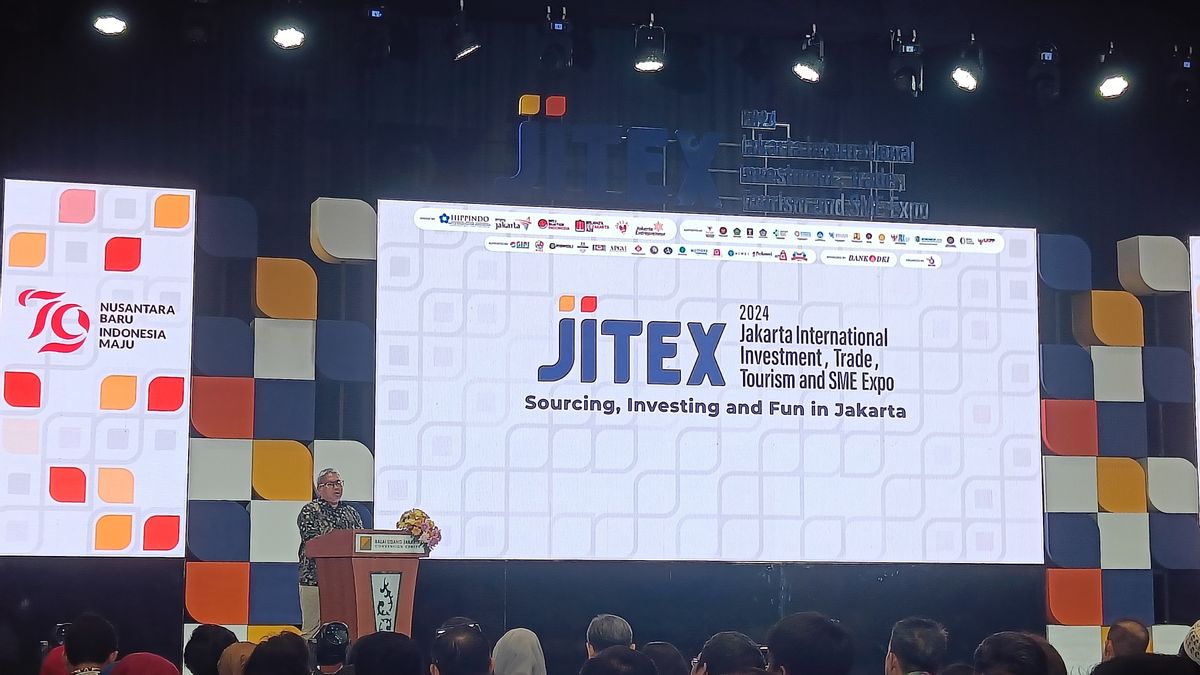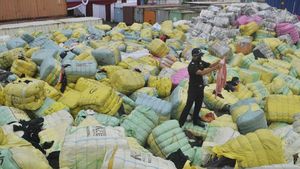JAKARTA - The Ministry of Cooperatives and SMEs (Kemenkop UKM) said that in the next 10 years, Indonesia will face the problem of deindustrialization.
Acting Deputy for SMEs at the Kemenkop UKM Temmy Setya said that the deindustrialization phase has been felt from the data collected.
The contribution of the processing industry sector to Gross Domestic Product (GDP) has been recorded at below 20 percent and has had an impact on massive layoffs (PHK).
"I think in the next 10 years, deindustrialization could occur. Deindustrialization has already occurred. Our GDP data is already below 20 percent, the impact if it continues to occur is that employment opportunities will continue to decrease," said Temmy in his speech at the Jakarta International Investment, Trade, Tourism and SME Expo (JITEX) at the Jakarta Convention Center (JCC), Wednesday, August 7.
He added that currently, business actors who have capital tend to be reluctant to invest in building new manufacturing or new factories. However, business actors tend to prefer imported raw material products that are much cheaper.
"They tend to buy imported products that are cheaper, they can immediately get profit," he said.
According to Temmy, his party also sees that the market in Indonesia has been hit by imported goods until now. If this is allowed to continue, it will be very difficult for Indonesia to escape the middle income trap.
"For that, the spirit of building the economy from the bottom, MSMEs, to become big businesses is very important right now," he said.
On a different occasion, Temmy said that 50 percent of Chinese textile and textile product (TPT) imports were not recorded as entering Indonesia. This is due to the gap between the value of China's exports to Indonesia and Indonesia's import data from China.
SEE ALSO:
Temmy said that this was based on data that had been processed by the Ministry of Cooperatives and SMEs, the Indonesian Textile Association (API) and the Indonesian Filament Fiber and Yarn Producers Association (APSyFI).
The value of Chinese textile products to Indonesia reached IDR 29.5 trillion referring to data in 2022. Then in 2021, the value of unrecorded Chinese textiles to Indonesia was IDR 29.7 trillion.
Meanwhile, China's export data to Indonesia is almost three times greater than Indonesia's import value from China. Thus, there is a large difference in HS code numbers 61-63.
"There is 50 percent of the import value that is not recorded. This means that the export figures entering China are not balanced with our import figures. This means that we suspect that there are products entering illegally," said Temmy in a media discussion at the Kemenkop UKM office, Jakarta, Tuesday, August 6.
The English, Chinese, Japanese, Arabic, and French versions are automatically generated by the AI. So there may still be inaccuracies in translating, please always see Indonesian as our main language. (system supported by DigitalSiber.id)
















